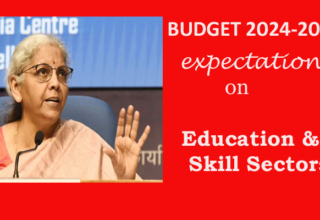
By Preethi Vickram, Founder, Tapas Education
Project-Based Learning holds the key to unlocking holistic development in children and its transformative power can be easily implemented in a classroom with some planned exercises and projects as we pave the way for the future of education. Embracing methodologies like Project-Based Learning are increasingly being seen desirable in nurturing well-rounded, empowered learners who can thrive as compassionate global citizens.
In fact, the engagement, skill development, ownership, real-world connections, and lifelong learning dispositions that arise from Project-Based Learning align closely with the methodology’s core principles.
 Here are some exceptional benefits that Project-Based Learning brings to the forefront:-
Here are some exceptional benefits that Project-Based Learning brings to the forefront:-
Nurturing Innate Curiosity and Engagement:
Project-Based Learning is the perfect conduit for tapping into children’s innate curiosity. As young minds immerse themselves in projects of personal relevance and interest, they become active participants in their learning journey. The projects they undertake serve as gateways to a universe of knowledge, instilling a lifelong love for learning.
Holistic Skill Set Development:
Holistic development is the Holy Grail when it comes to education curricula. Project-Based Learning inherently addresses this need by fostering the acquisition of a diverse skill set.
Intrinsic Ownership of Learning:
As a vocal advocate of play-based learning, I have witnessed the undeniable power of self-directed exploration. Project-Based Learning extends a similar principle, allowing children to take ownership of their learning trajectory.
Deepening Real-World Connections:
Education gains true meaning when it can be tangibly applied to real-world contexts. Project-Based Learning thrives on this principle, enabling children to bridge the gap between theoretical knowledge and practical application.
Cultivating Lifelong Learning Dispositions:
Beyond nurturing a mere thirst for knowledge, Project-Based Learning cultivates lifelong learning dispositions.
Let’s look at an example to understand Project-Based Learning well by assuming a project-based learning classroom that is divided into two groups. Let this be a project centered on planning and executing a public art-themed event.
Each group will work on different parts of the project, thus tackling different problems. The different groups’ works contribute to the end result and successful completion of the project.
Let’s assign Group 1 to look after the sound and entertainment at the event. The project for the group will be to create a band using everyday objects. The students will need to learn rhythm, melody, and harmony, composing their own songs to be performed at the event. They will also be responsible for creating art pieces to be displayed and contributing to the catering for the event.
Group 2 will focus on lighting for the show and running on-stage shows. The students will need to learn about lights and shadows to ensure proper presentation and visibility at the event. They can use this learning about the play between lights and shadows and present a shadow puppetry show at the event. This group will also be responsible for creating a gift shop and a lemonade stall. This will need them to create products for the gift shop, understand the finances behind it, and track sales.
Both groups will be engaged in diverse activities, combining arts and real-world experiences to enhance learning and contribute to the public event’s success.
What do we achieve in terms of learning from this example?
By addressing the essential question of how to plan and execute a public art event, students will engage in real-world, hands-on activities that will not only nurture their curiosity but also drive their active participation. The students’ immersion in the arts, from performance to visual, will spark engagement and a thirst for exploration.
Group 1 will focus on sound where the students will create a band using everyday objects, learning about rhythm, melody, and chorus. This process involves critical thinking, creativity, and collaboration – foundational skills that Project-Based Learning naturally develops. Moreover, the students’ involvement in creating art pieces and managing aspects of the event, including catering and handling finances, will help them understand the real-world applications of their learning, solidifying their problem-solving and communication abilities.
In both groups, students will need to take charge of their projects, choosing themes, methodologies, and even actively participating in event planning. The autonomy they will have over their projects will not only empower them but also cultivate decision-making abilities and a sense of responsibility, attributes that are integral to holistic development.
In our example, the expectation from the students is to use their mental faculties and technology to make the event a success. This will need the students to engage in inquiry-driven thinking. By seeking answers and actively engaging with their environment, students will develop a habit of continuous learning. This commitment to learning will equip them with the adaptability and resilience needed in a rapidly changing world.











